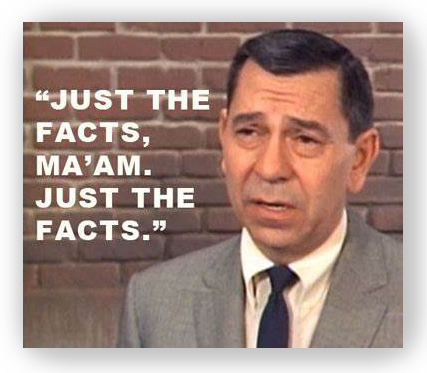We post news and comment on federal criminal justice issues, focused primarily on trial and post-conviction matters, legislative initiatives, and sentencing issues.

2255 THAT WAS TOO EARLY IS NOT TOO LATE, 4TH CIRCUIT SAYS
 Andra Green was convicted of a series of Hobbs Act robberies, attempted robberies and conspiracies, along with several 18 USC § 924(c) offenses for using a gun during a crime of violence. Such § 924(c) offenses come with mandatory consecutive sentences and are thus beloved by prosecutors.
Andra Green was convicted of a series of Hobbs Act robberies, attempted robberies and conspiracies, along with several 18 USC § 924(c) offenses for using a gun during a crime of violence. Such § 924(c) offenses come with mandatory consecutive sentences and are thus beloved by prosecutors.
The reason for prosecutorial affection is illustrated in Andra’s case. Because someone died during one of the Hobbs Act robberies – a violation of 18 USC § 924(j) – Andra was sentenced to life in prison.
But a few years after Andra’s conviction, the Supreme Court decided Johnson v. United States in 2015. Johnson held that the residual clause of the definition of “crime of violence” – the part that said that a crime was violent if it carried a substantial likelihood that physical violence would result – was so vague as to be unconstitutional. Andra connected the dots – like a lot of prisoners did at the time – and figured that if Johnson invalidated the crime-of-violence residual clause for the Armed Career Criminal Act, the similarly-worded residual clause in 18 USC § 924(c) must be equally unconstitutional.
Andra filed a 28 USC § 2255 motion to vacate his § 924(c) and § 924(j) convictions based on his notion that Johnson should logically extend to § 924(c) crimes of violence. Such a § 2255 motion must be filed within strict time limits, such as within a year of the underlying conviction becoming final or within a year of a new constitutional holding that invalidates the conviction. (You can read the limitations in 28 USC § 2255(f)).
Andra was wrong: Johnson did not affect § 924(c) at all. The government argued that Andra’s petition was hopelessly late because it could not rely on Johnson, but instead had to be filed within a year of conviction (and it was four years late for that).
 But Andra was prescient. Johnson may have had nothing to do with § 924(c) offenses directly, but it was the canary in the mine: the Supreme Court over the next few years would extend Johnson’s logic to 18 USC § 16(b) in Sessions v. Dimaya and then to § 924(c) in United States v. Davis. Andra’s petition was held in abeyance by the District Court and later the Fourth Circuit as all of this unfolded. Four years after Johnson, Davis held that the residual clause in § 924(c)’s definition was unconstitutionally vague as well.
But Andra was prescient. Johnson may have had nothing to do with § 924(c) offenses directly, but it was the canary in the mine: the Supreme Court over the next few years would extend Johnson’s logic to 18 USC § 16(b) in Sessions v. Dimaya and then to § 924(c) in United States v. Davis. Andra’s petition was held in abeyance by the District Court and later the Fourth Circuit as all of this unfolded. Four years after Johnson, Davis held that the residual clause in § 924(c)’s definition was unconstitutionally vague as well.
Clearly, Andra’s § 2255 motion was untimely when he filed, because Johnson was not a constitutional ruling that would restart Andra’s § 2255 clock. That, as the 4th Circuit put it, made “the key question… whether Davis renders Green’s Johnson-based motion timely” after the fact.
Last week, the 4th said that being early ended up making Andra on time. For starters, it said, “[t]he Davis Court extended the holding of Johnson” to invalidate the “analogous” residual clause in § 924(c). Indeed, in concluding that § 924(c)’s residual clause is unconstitutionally vague, the Supreme Court noted that the clause “bear[s] more than a passing resemblance” to the ACCA residual clause it had struck down in Johnson. Davis thus confirmed what Andra’s motion asserted: that the vagueness analysis in Johnson also called into question the constitutionality of § 924(c)’s residual clause.
 The Circuit said the text of § 2255(f)(3) “is silent on how to address this particular scenario, where a petitioner filed a § 2255 motion within a year of a Supreme Court decision recognizing a closely analogous right, and the Supreme Court then recognized the specific right at issue during the pendency of the § 2255 proceedings.” The purpose of the statute of limitations supports extending the limitations period here, the 4th held, because the goal of the limitations in § 2255(f) is to “curb the abuse of the statutory writ of habeas corpus… including undue delays. A petitioner certainly does not contribute to undue delays by filing a § 2255 motion too early. And a petitioner does not abuse the writ by raising an argument, based on very persuasive but non-controlling Supreme Court precedent that the Supreme Court then endorses in a controlling decision.”
The Circuit said the text of § 2255(f)(3) “is silent on how to address this particular scenario, where a petitioner filed a § 2255 motion within a year of a Supreme Court decision recognizing a closely analogous right, and the Supreme Court then recognized the specific right at issue during the pendency of the § 2255 proceedings.” The purpose of the statute of limitations supports extending the limitations period here, the 4th held, because the goal of the limitations in § 2255(f) is to “curb the abuse of the statutory writ of habeas corpus… including undue delays. A petitioner certainly does not contribute to undue delays by filing a § 2255 motion too early. And a petitioner does not abuse the writ by raising an argument, based on very persuasive but non-controlling Supreme Court precedent that the Supreme Court then endorses in a controlling decision.”
United States v. Green, Case No. 16-7168, 2023 U.S.App. LEXIS 11961 (4th Cir., May 16, 2023)
– Thomas L. Root



